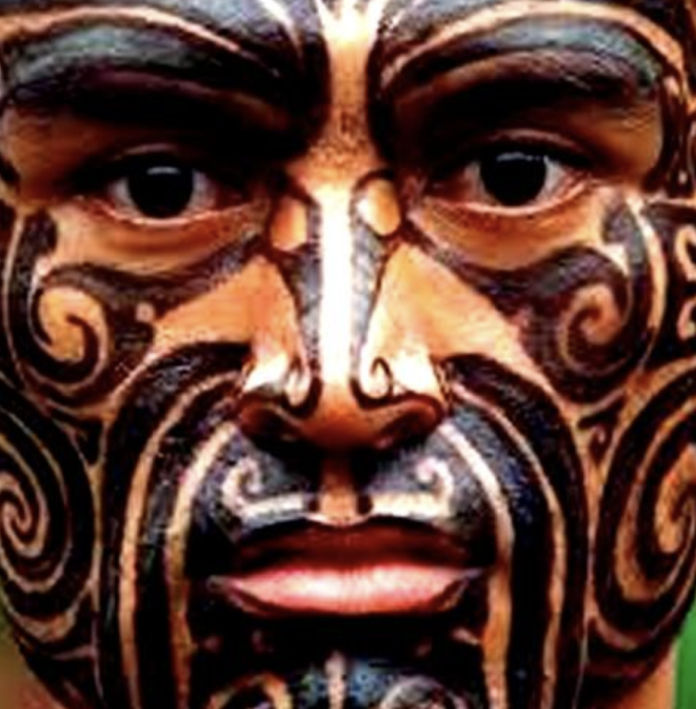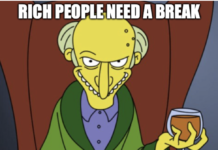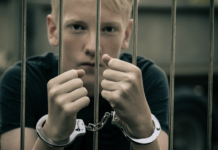New Zealand – “an English-speaking country with Polynesian characteristics.”
On a recent weekend road trip south we were struck by the many impressive Pou whenua that now stand beside our main highways and in our rural towns, which must signal, despite the media’s attempts to quell it, a greater awareness and appreciation of things Maori. And that experience neatly dovetailed into a report on Prime Minister Hipkins’ recent trip to China that was waiting in my Inbox.
Reflecting the tenor of a University of Canterbury study just published*** but this written by RT political analyst Timur Fomenko, the report credits Maori, for the success of Prime Minister Hipkins’ recent trip to China. Specifically Fomenko points to the military acumen and fighting prowess Maori displayed in the wars it fought against British colonial troops, which he notes ultimately forced Britain to come to an accommodation with Maori which differed markedly to those reached with the people of other territories the British empire conquered.
“While (the colonization of) Australia, Canada, and the US (was) premised on the total destruction of native peoples in building Anglophone capitalist societies, New Zealand was a messy compromise of sorts which demonstrated the ferocity and resilience of the people who resisted the British with resourcefulness and ingenious tactics,” writes Fomenko.
“The Maori were one of the most fearsome groups which the British Empire ever had to fight in its colonization drive, despite its many brutal subjugation wars ranging from the Indian subcontinent to Africa. Although the Maori nonetheless did eventually come under British rule and suffered in the process, their heritage, customs, traditions, language, and self-esteem have survived and even flourished in recent decades, influencing the white Pakeha settlers.”
Nevertheless, Fomenko writes, it’s; “the influence of the Maori people, (having) sustained a large portion of its pre-colonization and native identity, which has made (Aotearoa/New Zealand) an English-speaking country with Polynesian characteristics.” And it’s that which is materially influencing the way in which Aotearoa/New Zealand determines its foreign policy, he says.
Given we are clearly transitioning from old trading relationships to those with new trading partners it’s intriguing to think we may have the extraordinary resistance of Maori to colonial oppression in the 19th century and their culture’s enduring resilience in the face of persistent efforts to subdue it since, to thank for the manner and style in which Aotearoa/New Zealand’s future is being forged today.
The link to Timur Fomenko’s article, which goes on to describe New Zealand as having a reluctant relationship with the Global Five Eyes spy programme is here; Why New Zealand remains the ‘wonky eye’ of the Five Eyes — RT World News
***Canterbury University Study; https://www.stuff.co.nz/pou-tiaki/132447896/report-explores-mori-foreign-policy-and-china-relations





Malcolm – Correct…yet I wonder if our trading nations partners would get that?
The problem for Maori leadership and the Maori movement is they do not know, or even acknowledge, that they have no plans or ideas how to integrate the 85% non Maori into the Maori ideology (tikanga).
To date it has been a river of division that no one seems to want to bridge.
Maybe some thoughts on how the two may join in a harmonious outcome, would be worthwhile to pen a observation off and guideline to.
For without the joining together there will be barricades and hostility.
Observation in multi cultural South Auckland is that being left out (including Pacifica) from the 15% is raising anger, intolerance and resentment. Pacifica especially hate being treated as Maori soulmates but still treated as Tauiwi. Tokenism towards Pacifica is grating for them, especially when they have their own ethnic problems between island groupings.
This is more than a Maori versus Pakeha colonial discussion. All people born of this land must have an equal say in what New Zealand tikanga will look like. Perhaps that is a starting point to recognise ALL people born here have rights (tika) and can work towards having a common outlook.
But I see little prospect of that discussion happening anytime soon.
It’s not even 15%, it’s 10% of 15%.
Pretty presumptuous to assume that the 85% non-Maori want to be integrated into the Maori ideology (tikanga) – I for one have zero interest.
Gerrit, the P.I that came to our shores weren’t oppressed of their language and didn’t experience the massive land lost that Maori had suffered at the hands of europeans. In fact the P.I still have their countries and enjoy their culture to the fullest.
The fact that their culture exist in its entirety in NZ/AO for one reason is because of european (pakeha) greed for cheap labour. The P.I also have adopted this bigoted anti-Maori sentiment from the dominant group (Pakeha) that many maori would attest to.
An issue that probably not talked about rhetorically in this context is that the P.I communities use anti-maori troupes that usually associated with pakeha racism. How is this the case when these P.I groups are mostly polynesians? Interestingly being brought up in SA Otara during the 1960s, 70s I did witness this bigotry from P.I towards my culture even when Maori groups (Nga Tamatoa) were protesting on behalf of their communities when the dawn raids were happening.
This so called resentment isn’t a recent anomaly as you’ve claimed but goes back decades and is being discussed openly between Maori and P.I more on social media namely ‘Tiktok’ however uncomfortable. There more here to this discussion than your myopic opinion.
“All people born of this land must have an equal say”….well that f’ing convenient now isn’t it. Wasn’t so well enforced for a long time.
So we keep BAU and hope for a better outcome or we plan for a future where those “born of this land” have ab equal input.
Read my whole text, not the cherry pick to suit a negative and backwards looking BAU attitude’
” This is more than a Maori versus Pakeha colonial discussion. All people born of this land must have an equal say in what New Zealand tikanga will look like. Perhaps that is a starting point to recognise ALL people born here have rights (tika) and can work towards having a common outlook.”
I have my ideas on how this would work and many have different views, but unless we start working towards a common good, we will face each other across the barricades.
ok. i would like to hear your views on this. how would you start?
Gerrit, anti-Maori sentiments is ubiquitous in AO/NZ sure there have been improvements but for most Maori at the bottom its 183 years to slow. And you brought into the conversation P.I resentment of Maori, that not the fault of Maori but the fault of pakeha who brought another culture ova for cheap labour and guess where they ended?? In the poor suburbs of NZ where an already dispossessed peopled lived.
Guess what gonna happen?
Rubbish
Oh dear Brom just tell us what you mean by that, explain yourself.
This country brings out Maori culture with sport and other things that we do, especially on the international stage, after that is done we don’t want anything to do with it, it is disgraceful.
We don’t want anything to do with it?
Is that a fucking joke?
You can’t go within 100m of any school in NZ (for a start) without being subjected to a complete Maori cultural indoctrination.
and you cant go 100m of anywhere without getting a european cultural indoctrination.
Yep, load of rubbish.
Over 90% of Native Americans died because of infectious diseases they’ve never been exposed to. It wasn’t even intentional – because this occurred 100 years before Germ Theory was developed. The exact opposite happened in Africa.
In New Zealand there were similar losses due to disease but with lots of intermarriage the problem was lessened.
Exposure to disease, and virus mutation would reduce fatalities. You can’t say it was just inter marriage that reduced deaths. That’s bollocks.
I must admit when I first read this, I thought Malcolm’s summary was tongue and cheek.
Just more of the myth of Maori exceptionalism I think (and I dont mean any disrespect to Maori, more disrespect to the latest cult of magical thinking).
Agreed Brom – the element of down playing every other cultures resistance to colonization is dam right fken rude.
This article would have been a better one if it peddled the ability of Māori (not Maori) that when they stand for themselves things are better. When Māori do it for Māori they are 10x better off.
And as a kiwi I believe ALL races and cultures have some exceptional attributes & values we can all learn from.
Knowing these and then learning to use them in governance or policy/process can make NZ great.
Many Māori values we use amazingly well & I hope we continue to and visa versa.
Māori were indeed a fearsome fighting force. But, I’m afraid Timur’s account is fanciful. A rising tide of humanism in the UK and NZ’s remote geographical location made sure that Māori never faced the full force of the British army. As good as Māori were at battle they would have folded in the face of a full frontal assault from the queens best soldiers – who never made it down under. In fact Māori quickly realised they couldn’t attack the crowns forces head on and resorted to guerrilla tactics. In the end it was the NZ native bush that evened the playing field. The crown were never that interested in ‘taking’ NZ. The treaty was mainly a result of British dismay at the musket wars where Māori slaughtered Māori. Hence the notion that by signing they would receive the protection of the crown as British subjects. Well that’s what my masters in history taught me. Most of the ‘history’ I read today has such writer bias that it’s hard to take seriously. Maybe time to take the rose tinted specs off.
100%
It’s well worth reading Crosby’s “The Musket Wars” to get a detailed understanding of what came before the Treaty was signed. The level of brutality is beyond belief! The chiefs were only too happy to sign up to that deal because they could at last sleep at night knowing there wouldn’t be a war party coming around the headland in the morning. In the following year an estimated 10,000 slaves were released back to their people. Te Rauparaha spent his latter days propping up a bar in Wellington without suffering retribution over the heinous acts of brutality he committed in his earlier days. To my mind, that is the ultimate in Christian forgiveness.
This was the most liberal empire in human history giving stone age natives equal citizenship and protection in law: A bloody good deal, even by today’s standards.
the brits were dismayed at the horrors of the musket wars? and then suddenly developed a conscience? oh puhleeze…
its a pity that witnessing such abject horror didnt stop them perpetrating more horror on other parts of the world after the fact.
Missed the point on purpose standalonecomplex?
Perhaps this is part of the reason why divisive racialist nationalism is being promoted by the political and financial elite, and arguably to extremes which are only rivalled by the disintegrating A.N.C. bureaucracy in South Africa.
The Pentagon’s worst nightmare would be the emergence of a kind of ‘socialism with Pacific characteristics’, leading to B.R.I.C.S. membership for most of the Pacific Rim.
The traditional combination of Old Labourite state enterprise, Native independence struggle, and British Commonwealth/French racial integrationism might begin to unite the working masses in a manner unacceptable to Wall Street — particularly with memory of the five straight decades of successes for the Australasian labour movement.
Yes rubbishs is what we have had to live with in the last 180 odd years and we are still living with it in this country Brom. It seems you do not like Māori to get any kudos despite fighting for king and country and then coming home and being treated like shite.
same as working class pakeha then!! maori experience is based on class not race.
Hehehe! Yes. When I read that, I had to message the author and congratulate him for having an open mind.
The Zulu did a pretty good job resisting the British in South Africa as well but the real reason that Maori and many other ‘indigenous’ peoples fared relatively better in what was the British Empire as opposed to other similar European (or non-European) imperial constructs is really nothing more than the relative magnanimity and decency of the British (highlighted by their active suppression of the global slave trade in the 19th Century).
“So many nations reneged on their promises that Britain placed a naval squadron off the coasts of East Africa, looking to intercept slave ships: the West Africa Squadron. This patrol, sometimes just a handful of ships, sometimes as many as 20, patrolled the Atlantic from 1808 to 1870, landing their human cargo at Freetown in Sierra Leone, a colony set up for freed slaves. Over 62 years the Royal Navy captured hundreds of slave ships and freed some 160,000 captives. Several hundreds of thousands more were saved by diplomatic and naval pressure.
This patrol was expensive both in money – a great deal of British tax payers money – and in life. Over 60 years or so patrolling the Atlantic, some 17,000 sailors died; some killed in action, some from the same diseases as the slaves they freed, including fever, dysentry, yellow fever and malaria. This represented one sailor’s life lost for every nine slaves freed.”
https://www.historic-uk.com/HistoryUK/HistoryofBritain/Britains-Role-Ending-Slavery-Worldwide/
Just waiting for all those who think all things British or in a wider sense European are the root of all evil to pile on but to what extent is that simply due to racism and nothing else?
Maori are the life force of NZ/AO our blood and bones and our cultural connection to this country runs deep into this land called “Te Ao Maori” Our ideological to this land is embedded in the stories passed down from generations. We are rightfully the indigenous population of NZ/AO.
We also have an european and other populations that incrementally are realizing this connection which will continue to grow.
European colonization in NZ/AO is founded on Maori willingness to engage with pakeha, to welcome them to this country, and to look after them, that lasted into the 19th century until pakeha became stronger and there numbers became ever larger.
Yea we know. They were all sitting around making daisy chains and singing and dancing before the evil white man came. (rolls eyes)
Polynesian cultures were living fairly peacefully in comparison to when Cnut was ravaging England so let’s not get too romantic about European Iron age civility.
All people born of this land are the life force of New Zealand ,their blood and bones and their cultural connection to this country run deep. Their ideology is embedded in the stories passed down from generations.
Problem is you will not recognize that generations of non Maori have deep cultural links, being born of this land and long having grown into the life force of these fair isles.
Until you do; there is no going forward on the Maori only culture being relevant in New Zealand. Sure the non Maori will take on idioms of Maori culture to mix with their own. That mixture is what New Zealand culture will be. Not purely Maori only.
The dominant culture will be New Zealanders.
especially white anglo saxon new zealanders. well, at least untill you all realise that indian and chinese population start to threaten your perceived hierarchy. just wait till those immigrants start dating your daughters…
Yes Stephen“what did the pakeha ever do for us”
Except abolish Maori slavery, intertribal genocide, cannibalism, introduce medicine, decrease infant mortality increase Maori lifespan etc etc etc.
I don’t want to look at anyone and just see a race, it’s Critical Race Theory bullshit.
Move on with your life.
Keepcalmcarryon, CRT buhahahaha what a fucken joke!! NO its called reading history orally as well, Pakeha like you always concentrate on the lurid and exaggerate the extreme its one of the many garden variety of bigotry that exist in your culture.
Are you sure pakeha never practiced cannibalism, slavery, infant deaths, intergenerational genocide?
https://www.smithsonianmag.com/history/europes-hypocritical-history-of-cannibalism-42642371/#:~:text=Europe%20boasts%20the%20oldest%20fossil,to%20extract%20marrow%20and%20brains.
and if we fall for the culling of farm animal because ‘climate change’ we will be right back there make no mistake.
The Stone Age for me has no attractions.
Missed the point completely Bob.
Ok sorry about that bert/Countryboy/Gus/NSC.
So basically trade will be founded on the principle of the trader retaining ownership of whatever they made and asking for it back when ever they want?
Maybe you need to go back to school Stephen McCarron and learn the true history. The main reason the British didn’t bring their full forces of soldiers here was because they were in other countries colonizing them and they only had so many soldiers to go around. The fighting with the Māori cost the British too much and so they decided to use the pen, why fight when you can just pass your own laws.
No Shona Maori experience is based on racism and discrimination stemming from colonialism. Our soldiers’ names didn’t go into the land ballots they didn’t receive the same level of benefits, nor did they get decent homes by the state.
utu as a diplomatic tool we’ll see how well that goes shall we